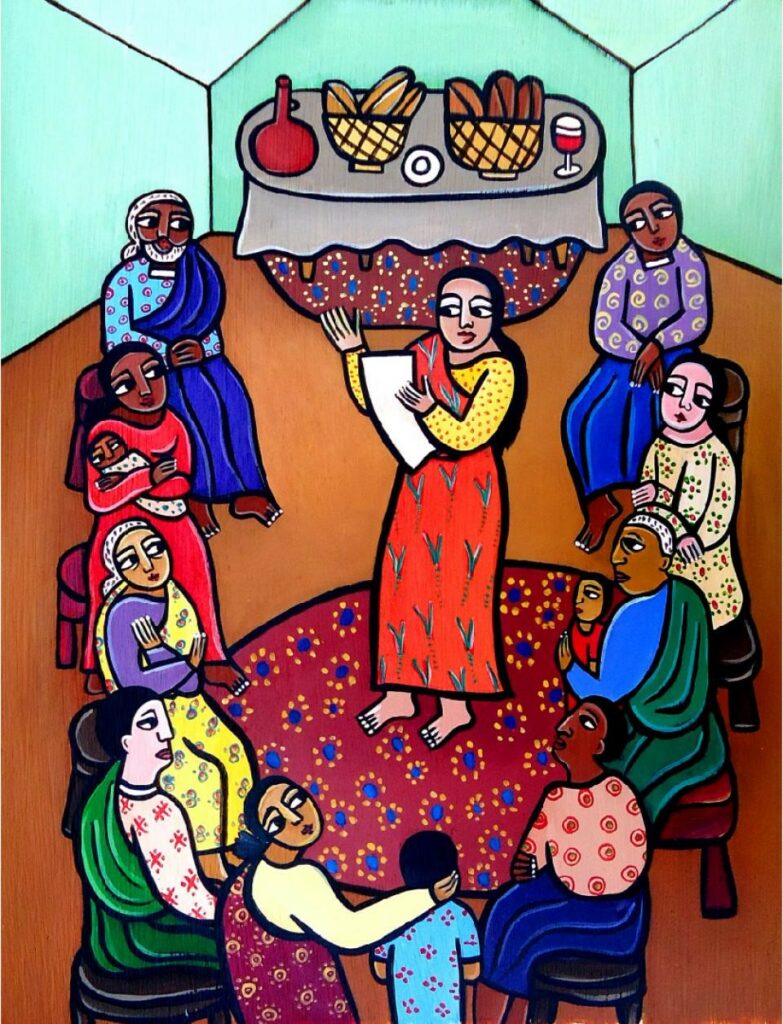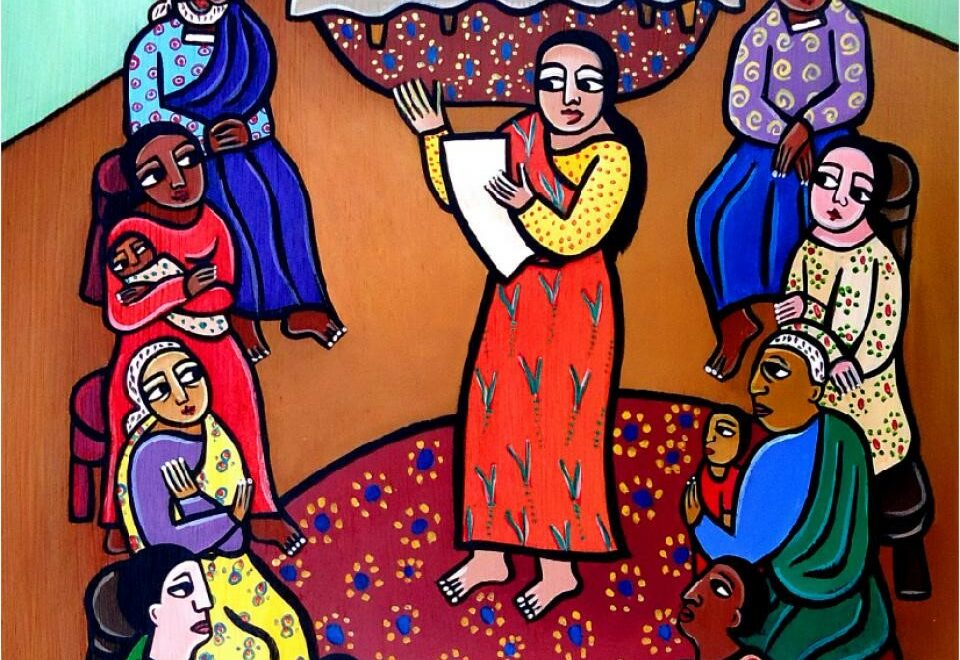
The Women of Hope Ministry has been inspired to explore this topic of “Women Deacons” because of the recent response to Pope Francis’ Synod. In listening sessions at our parish as well as at national and international gatherings, the People of God are ready to move forward with dialogue about and study of the question, “Who can serve the Church in the role of ordained deacon?”
Women of Hope Ministry has designed a process to consider this question and we now invite you to join in. In December and January, we shared articles in the bulletin and parish emails which took a fresh look at Scripture passages that describe the leadership and service of women in the early Church. We will reclaim important developments in our Church history and break open this topic in renewed ways. We will share the new reality opening up before us with Pope Francis’ commitment to synodality. These articles are shared below.
Join in the conversation at our Women Deacons series on consecutive Tuesdays, January 17 & 24, 2023 from 7:00 – 8:15 pm on Zoom.
Late in 1994, Saint Pope John Paul II decreed: “the Church has no authority whatsoever to confer priestly ordination on women and … this judgment is to be definitively held by all the Church’s faithful.” Then, in December of 2009, Pope Benedict XVI made some changes to Canon 1009 of the 1983 Code of Canon Law, regarding the diaconate. While Vatican officials maintained that the purpose was to “ease difficulties” in interpreting the role of deacons, the change began to raise some questions. Because the deacon was now to serve the People of God in the “liturgy, the word, and charity,” might not a woman be ordained to the diaconate? That question insistently remains to this very day.
In fact, we know that women like Phoebe served as deacons early on, as Paul noted in his Letter to the Romans of the late 50’s (Romans 16:1). Phoebe was a recognized “first,” but others came along in the First Millennium of the Church: preaching and teaching, serving women at adult Baptisms, caring for other needs of their people, and carrying important documents to other communities. However, by early in the Second Millennium, the number of women deacons died out, due to prejudice against their leadership, the replacement of adult immersion Baptism by infant Baptism, and other societal pressures.
Which brings us to today. Right now, the following question is being persistently raised, here, there, and all over the world: “why not ordain women as deacons?” For example, the Amazonian Synod of October, 2019, insistently raised this issue, since women were already serving their communities in this way. Clearly, voices in this country are not unique in pursuing this possible solution to believers’ needs.
DID YOU KNOW…

In the early church communities, very often the people themselves were responsible for choosing their leaders. Henry Chadwick, a renowned historical expert on the early church, writes that in choosing someone for the position that eventually became known as bishop, “…the actual choice of the candidate rested with the whole congregation, clergy and people together.” He also added that “Election by the people likewise played a large part in the ordination of presbyters and deacons.” So, in the history of the church, the Spirit has worked through the people of God to raise up those to serve in positions of leadership.
Perhaps one of the most famous church leaders to be chosen by acclamation was St. Ambrose of Milan, who was serving as a government official when the Bishop of Milan died. As Ambrose, who was well-known as a respected official and speaker entered the cathedral where deliberations were taking place, everyone shouted “Ambrose for Bishop!” Though hesitant at first, he accepted and was ordained a priest, and consecrated as bishop all in one day. He went on to become a well-loved and respected leader and has been named one of the Doctors of the Church.
It wasn’t until the Second Vatican Council in the 1960s, that the people were again acknowledged as Spirit-filled members of the Body of Christ, capable of recognizing the gifts within their community. Lumen Gentium, one of the major Council documents, states that “the entire body of the faithful, anointed as they are by the Holy One… manifest this special property by means of the whole peoples’ supernatural discernment in matters of faith…” To expand on their responsibilities it states further, “the Holy Spirit sanctifies and leads the people of God allotting gifts to everyone…distributes special graces among the faithful of every rank…which makes them fit to undertake the various tasks and offices which contribute to the renewal and building up of the church.”
WHY WE REMAIN HOPEFUL…
This past summer, after four and a half years of listening and dialogue in the synodal style about the question, “What is God asking of us as the church in Australia at this time,” and collecting 220,000 responses from Catholic Australians, a major issue that arose is the role of women in the Church. Many support the Diaconate for women.
After much deliberation and some disruptions and disappointments, the Australian Plenary Council, the highest form of decision-making assembly in the Australian Catholic Church, listened to the people and new motions were voted on and the good news is… they passed! While there were some changes and some toning down, the final document states: “should the universal law of the Church be modified to authorize the diaconate for women, the Plenary Council recommends that the Australian Bishops examine how best to implement it in the context of the Church in Australia.”
So the conversation is happening. The controversial subject of supporting women in the diaconate is a step closer to consideration for the Australian Church and, hopefully, leading the way for the rest of the world to follow.
Intrigued to discuss how the Spirit might be working through the People of God today to raise up and expand the circle of those who can serve in positions of leadership?
Join in the conversation at our Women Deacons series on consecutive Tuesdays, January 17 & 24, 2023 from 7:00 – 8:15 pm on Zoom. .

